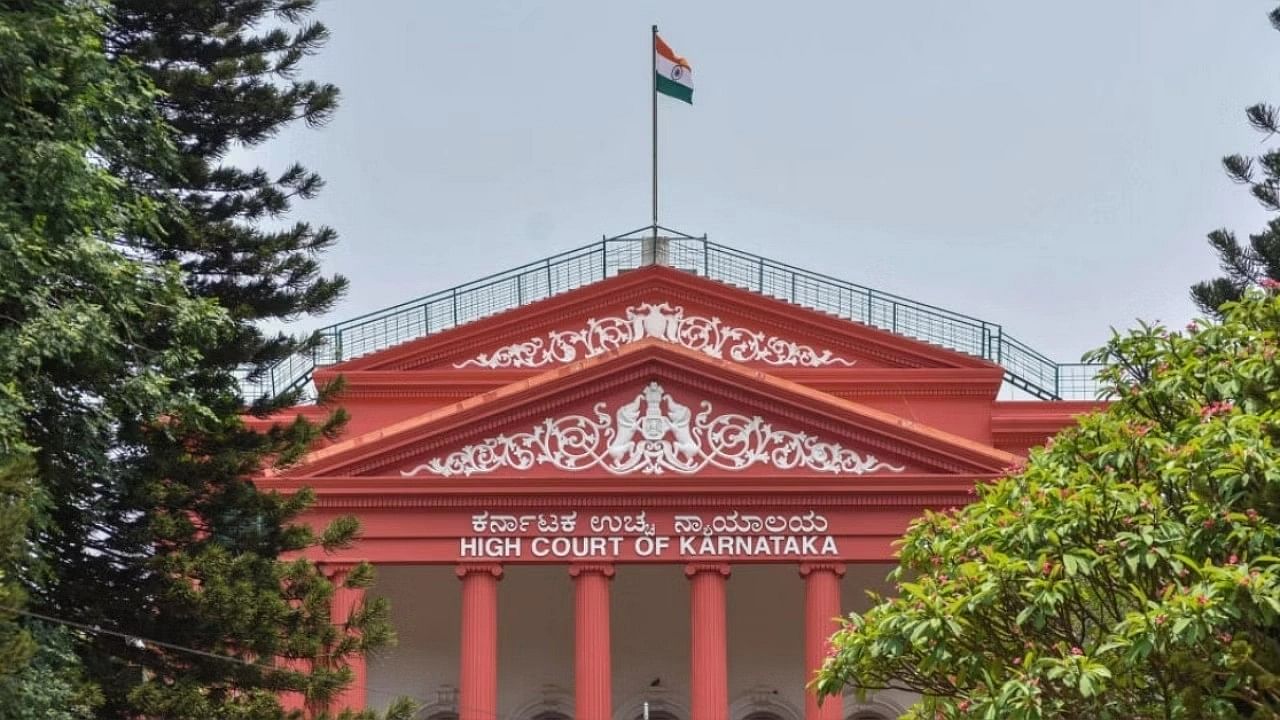
The Karnataka High Court.
Credit: DH File Photo
Bengaluru: Any amount of consensus or a consensual relationship will not give licence to a person to assault his partner, the Karnataka High Court has ruled, while partly allowing a petition.
The court, however, quashed the charge in so far as rape and cheating (on the promise of marriage) are concerned.
The petitioner and the complainant, both software professionals, are residents of Bengaluru and were colleagues at a software company. They were in a relationship for over five years. In July 2022, the woman filed a police complaint alleging that the petitioner had a physical relationship with her under the promise of marriage and had breached this promise.
The Annapoorneshwari Nagar police registered an FIR under IPC sections 376 (rape), 417 (punishment for cheating), 504 (intentional insult with intent to provoke breach of peace), and 506 (criminal intimidation).
The petitioner claimed that the complainant had registered a similar complaint against another man in February 2020, alleging that he also had indulged in sexual acts on the promise of marriage. According to the petitioner, the case registered in 2020 is pending and the complainant is habitual in registering repeated crimes on different men. The complainant remained absent before the high court.
Justice Nagaprasanna noted that the rape and cheating charges cannot be sustained in the wake of a consensual relationship.
“The facts obtaining in the case at hand is considered on the bedrock of the principles enunciated by the Supreme Court in the Shambhu Karwar vs State of Uttar Pradesh case. The offence of rape is loosely laid against the petitioner and if further investigation is permitted to continue against the present petitioner as is continuing against the other man, it would be permitting the complainant to sail in two different complaints at the same time. Therefore, the offence of rape could not have been laid against the petitioner. It needs to be obliterated,” the court said.
Justice Nagaprasanna perused the wound certificate and said that it indicates that there had been multiple bruises on the body of the complainant.
“The bruises are on account of assault by the accused, the petitioner. Therefore, while the offence under IPC sections 376 or 417 cannot be made out, the offence under IPC sections 323 (voluntarily causing hurt) and 504 are, prima facie, met,” the court said, adding that it is always open for the petitioner to avail of such remedy as is available in law if the investigation leads to filing of the charge sheet.